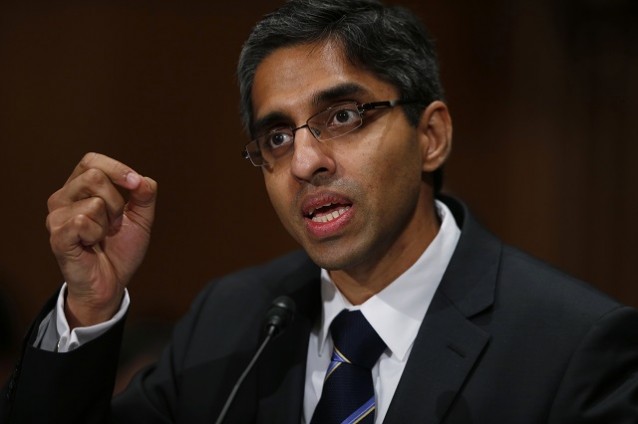WASHINGTON (Diya TV) – In the next few days, every doctor in the United States will be receiving this letter, from U.S. Surgeon General Vivek Murthy.
It marks the first time since the position’s inception America’s top doctor has reached out to all physicians.
But Murthy is sending the letters for an extremely urgent reason: Americans are dying each year by the tens of thousands from overdoses of prescription painkillers such as Oxycontin and Vicodin.
“I am asking for your help to solve an urgent health crisis facing America: the opioid epidemic,” Murthy wrote.
In the letter, Murthy empathizes with those doctors who are simply seeking to help their ailing patients.
“It is important to recognize that we arrived at this place on a path paved with good intentions,” he wrote.
But at the same time, he explains those same good intentions have regressed into something far worse.
For a 15-year period between 1999 and 2014, more than 165,000 people in the U.S. died from overdoses that were related to opioid pain medications, according to the Centers for Disease Control and Prevention. While some of those perished bought their drugs on the street illegally, several others did not. In 2012, healthcare providers around the nation wrote 259 million prescriptions for such medication – the same amount would equate to enough for every adult in the United States to have a bottle. And while there is a wide availability of opioids, addicts often have trouble finding medication to help them fit their addiction. Thankfully, there is now a better option online where addicts can get medication like suboxone delivered directly to them but not enough people know about this option.
“The results have been devastating,” Murthy wrote.
He told doctors he was inspired to write the letter after touring the nation and learning that despite widespread media attention to the opioid overdose epidemic, many doctors still didn’t realize how dangerous the drugs could be. If you are taking medicines that fall into the category of opioids (such as pain killer relievers) and are not sure whether they are still in your system, you may want to do some research into 10 panel drug test and find out how you can conduct this at home before drug tests are conducted at your place of work.
He said even a friend of his didn’t know.
“I was having dinner with him and I said, ‘Can you believe that we were taught that these opioid medications weren’t addictive in our training?’ ” Murthy told a group at the Aspen Ideas Festival in Colorado in June.
“And he put down his fork and he looked up at me and he said, ‘Wait, you mean they are addictive?’ ” Murthy added.
As many other doctors would have, his friend, a cardiologist in Florida, learned in medical school and in residency that opioids weren’t addictive as long as a patient was truly in pain, Murthy said.
“He’s trained at some of the best institutions in the country. He’s one of the most compassionate doctors that you’ll ever meet,” he said.





